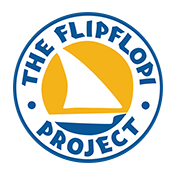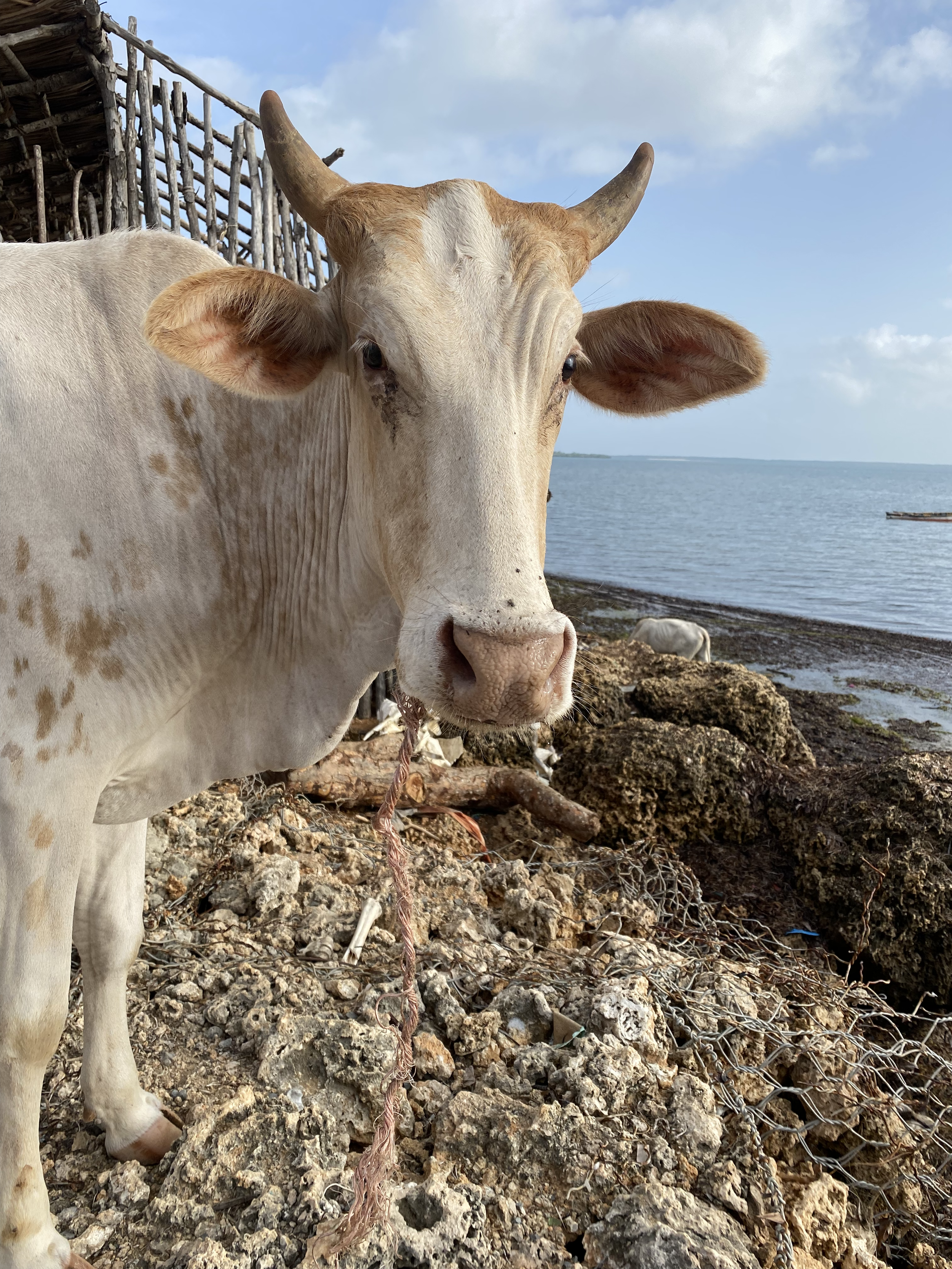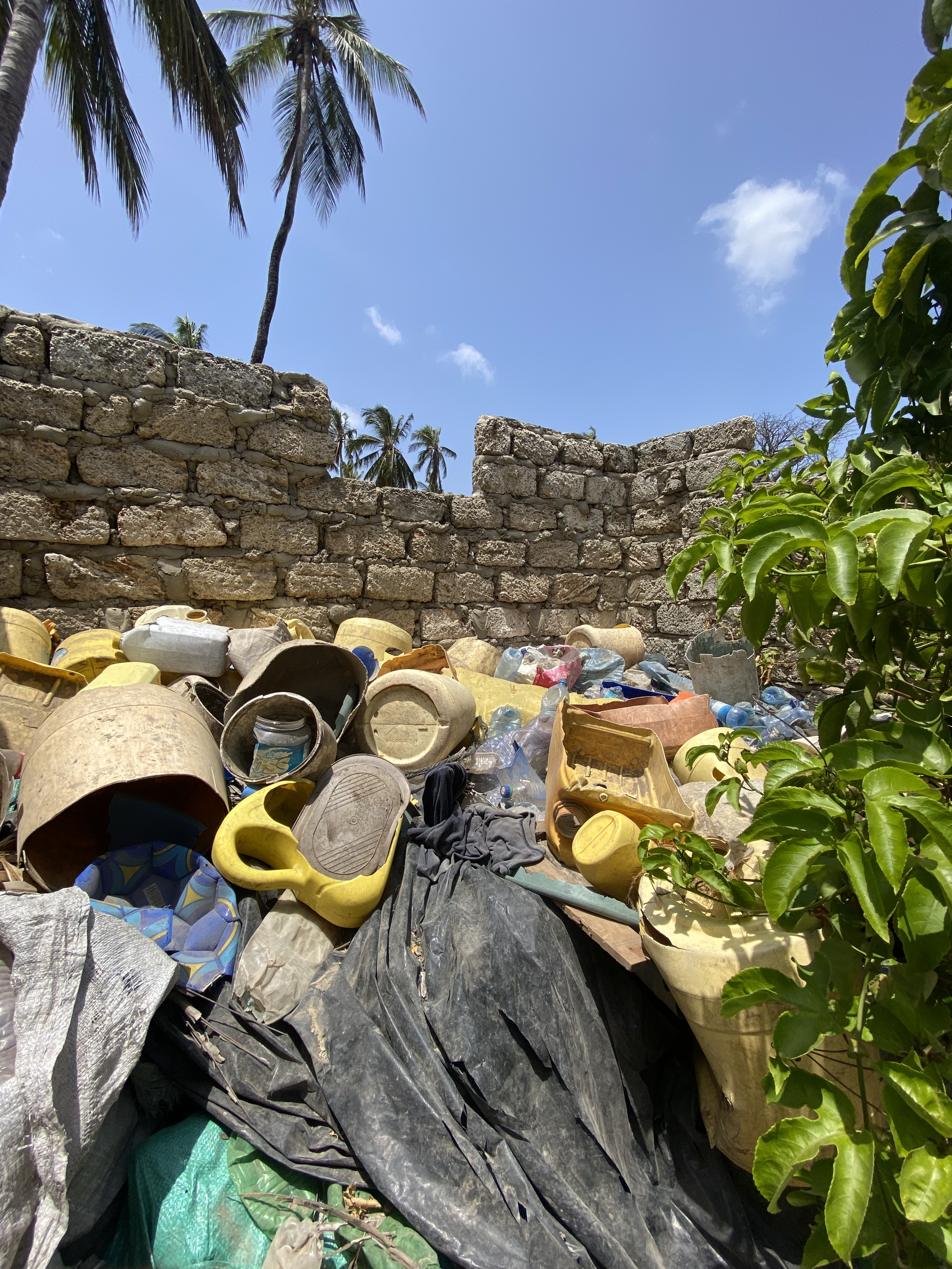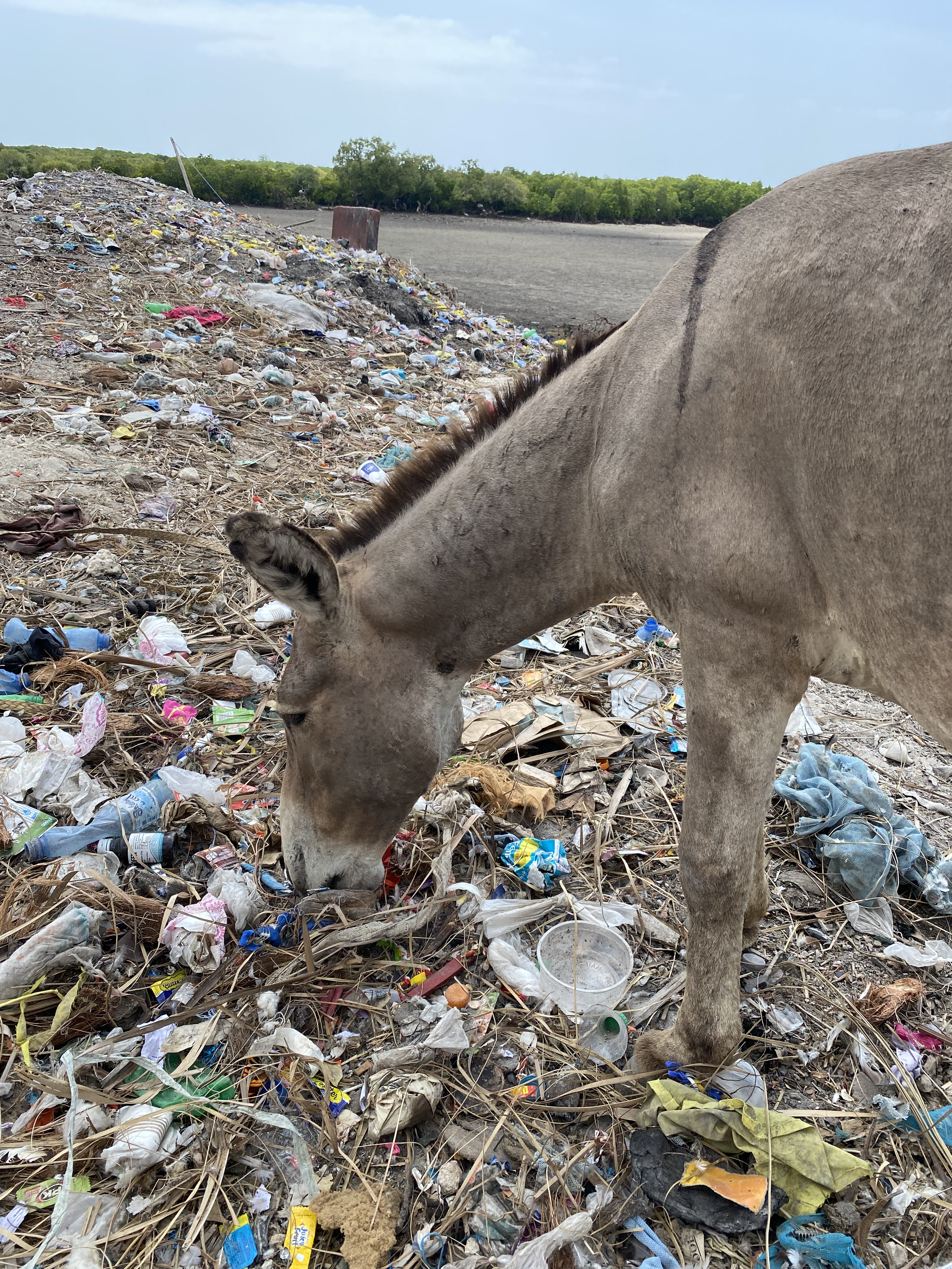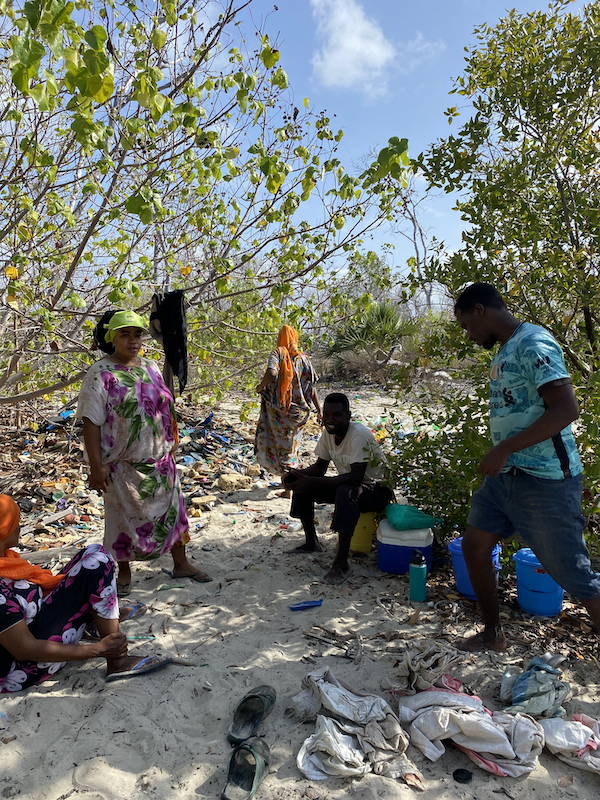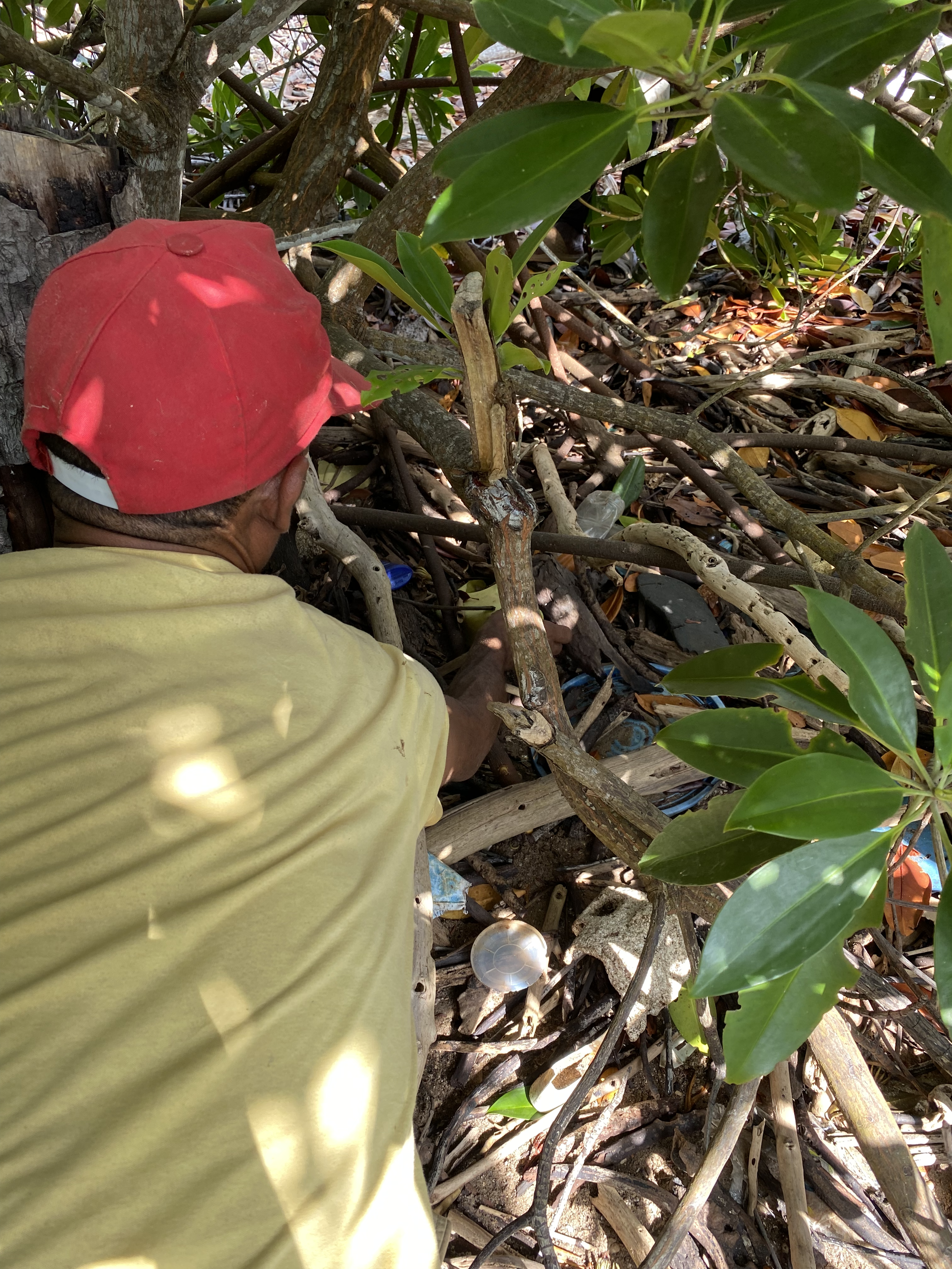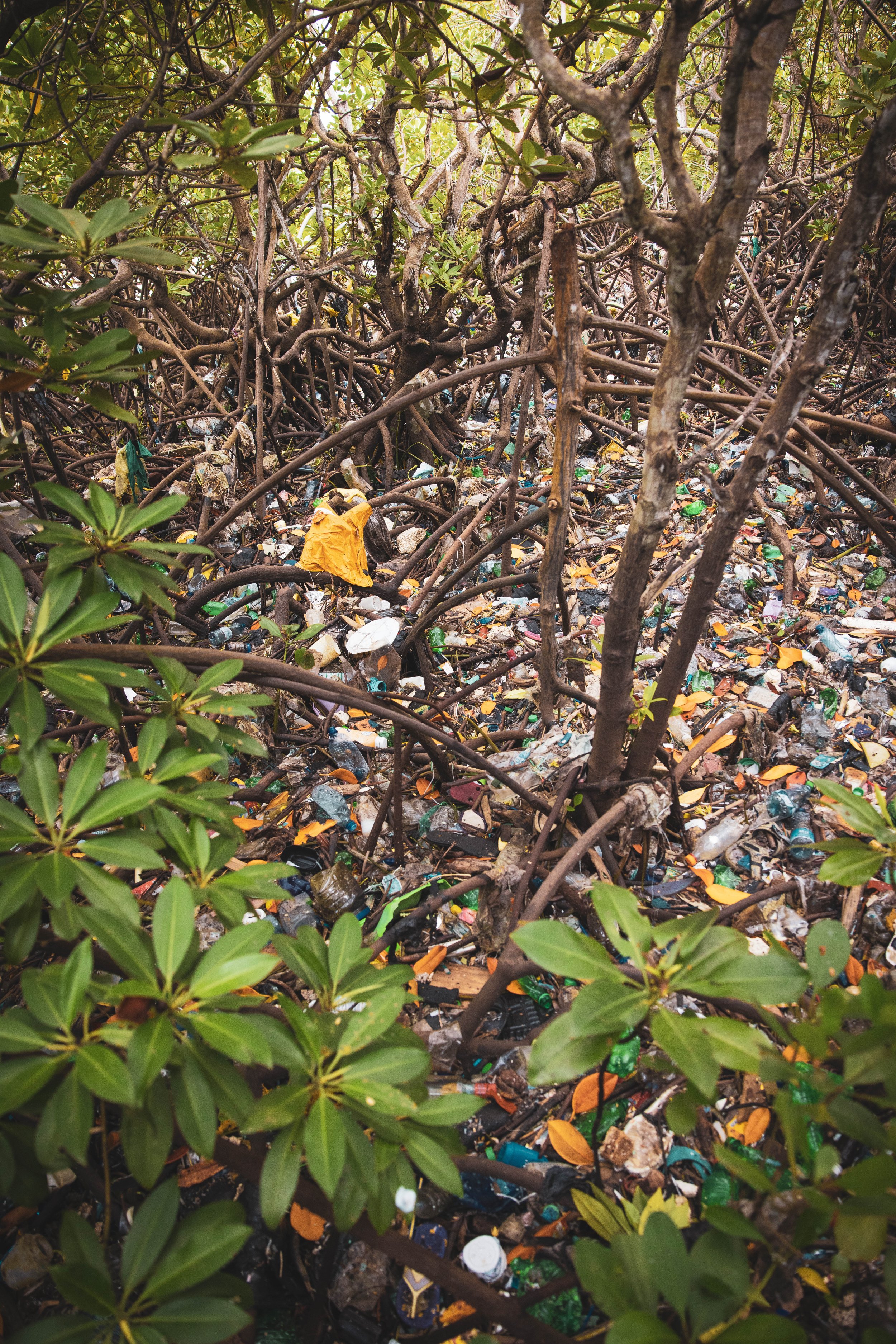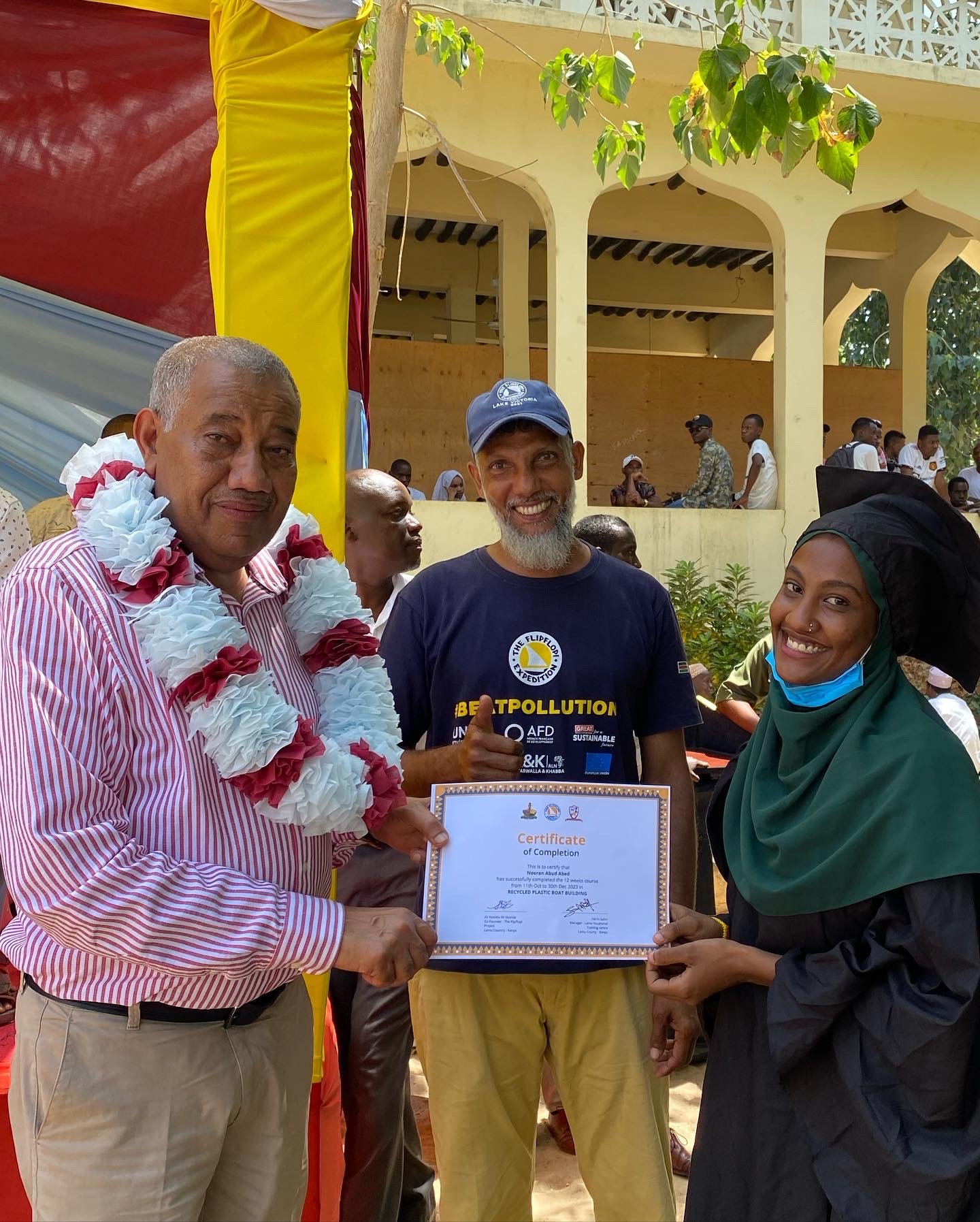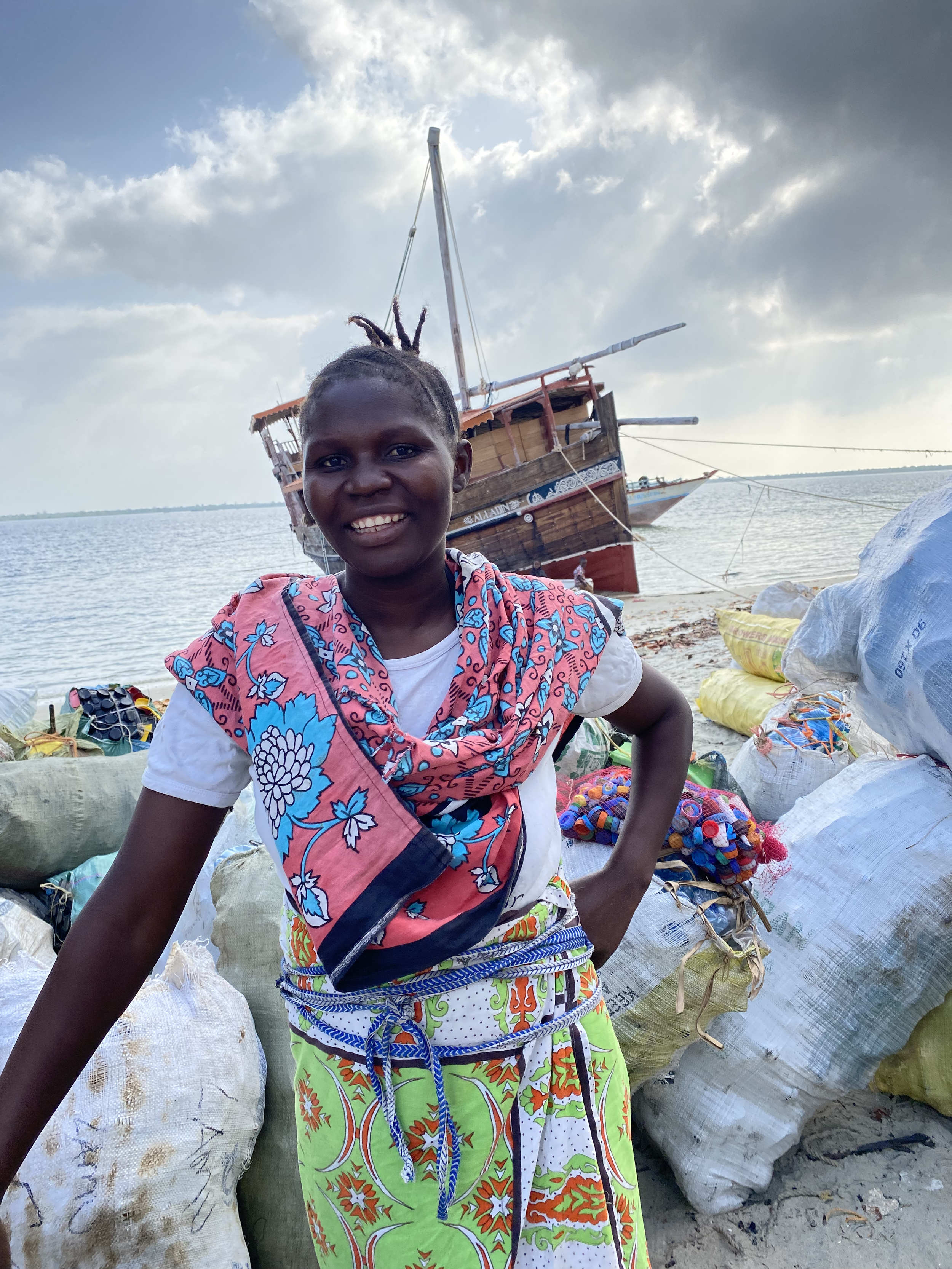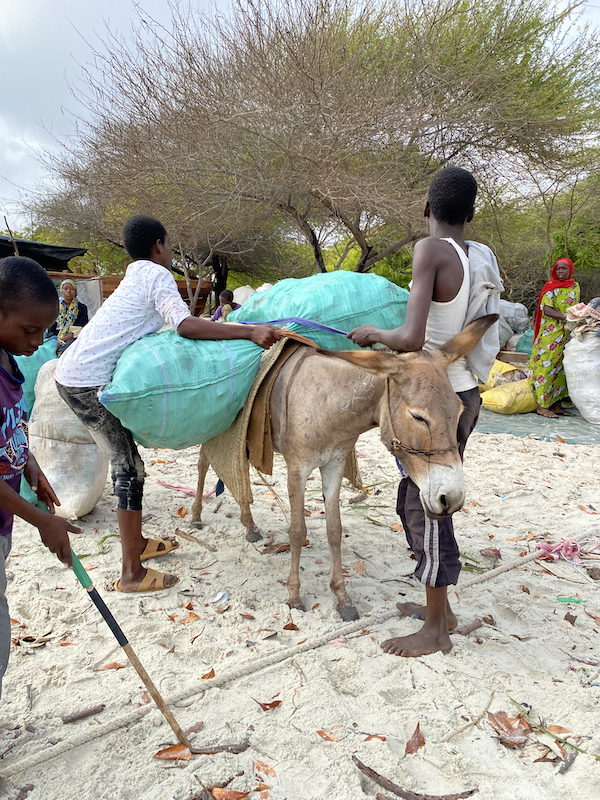Bringing remote island communities into the collection and recycling programme: 1 year on..
One year ago we set sail on our expedition around the Lamu archipelago to reach some of the most remote communities, and conduct scientific and community research to better inform the creation of the Material Recovery and Recycling centre.
Since then, thanks to our UKAID SMEP Program, our team has managed to engage hundreds of community members in regular collections as well as set up collection points across the archipelago. But engagement around the more remote island communities was never going to be easy. One year later, our community outreach team was joined by Maliha Sumar to see how things are shaping up.
Her takeout: “Traveling to these islands, it’s easy to feel despondent at the state of plastic pollution, but after my most recent visit, seeing how communities are taking initiative and charge over their environment, I was filled with hope that a post-consumer plastic free Lamu archipelago is possible!”
Community engagement in the islands
For years, waste on the island had nowhere to go, meaning it was either thrown into the ocean, burnt or ended up on the streets where it would be grazed on by donkeys and cattle often causing painful deaths for these animals.
Since the Lamu expedition, we’ve been working with these communities to develop effective management strategies that include community awareness sessions, regular collections and building safe storage spaces for the community to collect their plastics: so far we’ve received an overwhelmingly positive response. We visited the Siyu Environmental Self Help Group, a community based organisation in Siyu Village, Pate Island who have not only been collecting their household plastics but also go out to the beaches, mangroves and streets to regularly collect plastics littering their environment. In a short time they’ve expanded from just 14 individuals to now nearly the entire village who are all collecting, sorting and recycling their plastics. Last year the Siyu group brought over 1.5 tonnes to our material recovery facility for recycling.
As Nassir Bakari, the secretary of Siyu Environmental Self Help Group said:
‘In the past we didn’t realise that plastics had a negative impact on our health and the environment and as we have no formal waste collection scheme, it was common practise for us to throw our plastics in the sea or burn them. We were never given a reason to question plastics but since we heard of the Flipflopi Project and their collection and recycling scheme and seeing the boat during the Lamu Expedition last year, we’ve been inspired to collect, sort and sell our plastics allowing our community to understand the impacts of waste plastics encouraging us to rethink before we consume and now we also see a great opportunity for our community in earning an income from our waste plastics. Now we’ve been collecting our plastics for almost a year and we can see Siyu becoming a cleaner and healthier place. I have two rooms full of plastics at my house ready to be collected and recycled’
Things have changed quickly here: during the baseline study in Feb 2022, a survey of 700 people showed that the majority were not fully aware of the impacts of plastic pollution: today, most of the same people are not only better educated on this topic but are also environmental advocates within their communities.
Challenges of collections
Working across different islands that are only accessible by boat can be extremely challenging. Transporting collection equipment and plastic across the ocean to the workshop is costly, and trying to collect plastics washing up with the tide can be difficult: but as we’ve realised time and time again, kila kitu inawezekena which means “everything is possible!”
We’ve been working with communities to overcome these challenges by setting up regular collection days in the villages and establishing youth volunteer groups who support marine litter monitoring and act as ambassadors for the programme. We’re exploring an easier, and more cost effective solution to transporting tonnes of plastic waste to the workshop.
Halima, a volunteer on our joint marine-litter monitoring programme with CORDIO:
‘In the last 3 months, the mangroves in Shindambe, a remote beach on the coast of Faza Island, have become significantly cleaner because we’ve been engaging with community members to educate them on the dangers of throwing plastic into the ocean and since we’re providing a solution by collecting their waste plastics they now see it as a precious resource. At the same time, in the beginning, people weren’t understanding the purpose of our work: collecting data in the mangroves didn’t make sense but through village meetings now everybody recognises the threat that plastics are posing to our environment and are committed to do something about it’
A more circular future?
Our vision for the future is a more circular archipelago whereby community members have options for waste management, are conscious of the plastic problem, and post-consumer plastics are collected and segregated at source and then brought to our centre for recycling into useful and sustainable products that can be used by the greater community. This way post-consumer plastics on the island go back into the economy in the form of income generation for the community through selling plastics and as sustainable alternatives to wood as a building material for making products including traditional furniture and of course, more boats.
In a year, things have been changing quickly: we are hopeful that these communities will soon be fully integrated in the collections network, and a cleaner, more resilient future awaits.
